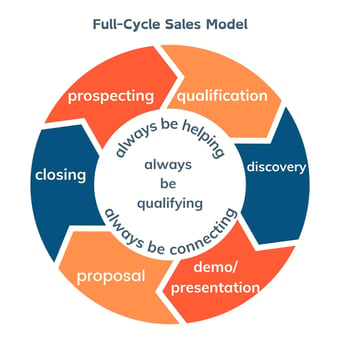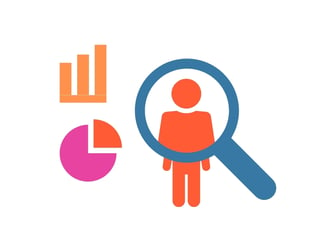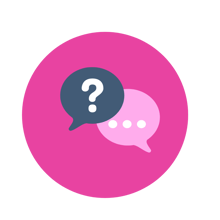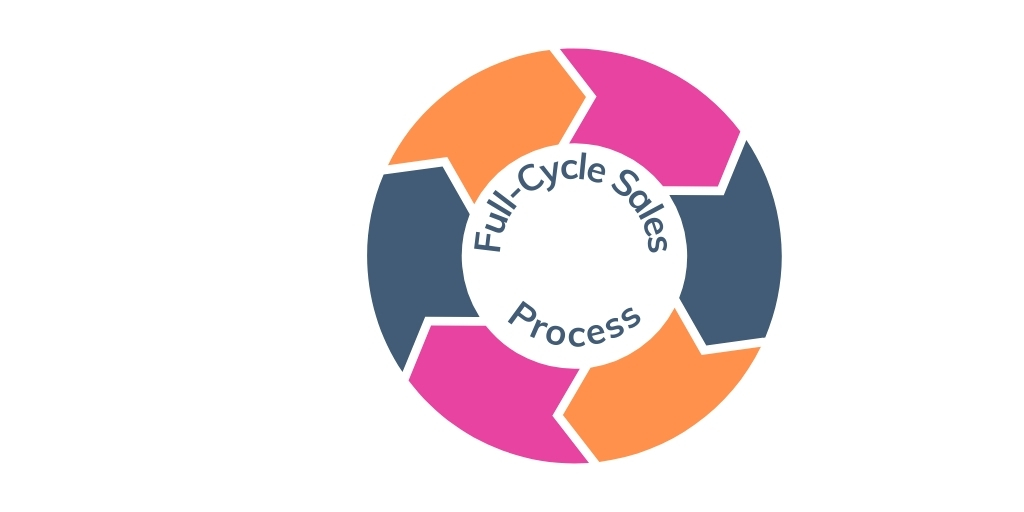Whats does SDR/BDR/AE mean in sales?
SDR/BDR/AE model

Sales has gone through a mind-blowing transformation, completely flipping the script on the role of sales representatives. The shift is pushing sales reps to become trusted advisors to their customers, just like in the old days before the dreadful customer-repelling SDR/AE model came along.
This change from being mere product experts to strategic partners not only alters the way sales professionals are seen but also turns the very nature of customer interactions on its head!
Forget the days when sales reps were just walking treasuries of product knowledge. They have now transformed into problem-solving experts and creators of value. This shift goes way beyond simply knowing the ins and outs of a product; it involves diving deep into the challenges customers face, exploring potential solutions, and critically analysing their pros and cons.
The idea of salespeople becoming trusted advisors is making a big comeback. Yeah, sales reps have some work to do to shift from being product experts to becoming trusted advisors but trust me, it's totally do-able. And you know what's driving this change? It's the customers themselves! They want someone they can count on, someone who actually has their best interests at heart and creates opportunities for longer-term relationships. A win-win for all parties.
A sales career within the SDR/AE model may not be appealing but moving to full-cycle sales attracts a wider pool of candidates. And why wouldn't it? Sales roles offer a wide range of duties and responsibilities, a variety of day-to-day tasks, and plenty for curious minds to discover, adopt and improve, such as Customer Relationship Management (CRM) platforms, Sales Methodologies, Qualification Frameworks, Opportunity Planning, Territory Planning, Big Deal Mapping, Sales Outreach, Social-Selling and Cold-Calling practices. It's a career where there is never a dull moment!
The transition from being solely fixated on products to becoming trusted advisors is a great move for sellers and buyers alike, creating a world where sales professionals are revered for their sharp insights, invaluable guidance, and unwavering commitment to solving customer problems.
As the line between sales and strategic partnerships becomes less clear, the role of the sales rep is evolving from a mere transactional position into a role focused on mutual success.
The move from a reliance on specialised roles, such as SDRs and BDRs, to a full-cycle sales model will be rapid and very welcome.
Businesses are being forced to do the impossible - achieve more with less. It's like trying to fit an elephant into a doll's house! And as a result, sales tools are coming under scrutiny. Managers are busy searching for ways to simplify their tech stack, like trying to untangle a ball of Christmas lights. But let me tell you, this trend isn't going away anytime soon.
 The idea of doing more with less has become the mantra for businesses in every corner of every industry. Enter the full-cycle sales rep. These sales warriors are here to save the day, taking on the entire sales process from start to finish. Building rapport with prospects and customers without the loss of momentum that inevitably happens in the handover to an AE.
The idea of doing more with less has become the mantra for businesses in every corner of every industry. Enter the full-cycle sales rep. These sales warriors are here to save the day, taking on the entire sales process from start to finish. Building rapport with prospects and customers without the loss of momentum that inevitably happens in the handover to an AE.
Well, here's a silver lining for buyers - they can finally breathe a sigh of relief knowing they don't have to go through the tedious process of repeating all their requirements, pain points and must-have features to a new player in their buyer's journey!
We know buyers these days are smarter than ever. They've done their homework and researched every nook and cranny of your product or service before even considering talking to a sales rep.
So, sales reps, it's time to level up your game. Knowing your product inside and out is no longer enough. You need to become a problem-solving guru, an expert in the art of understanding your customers' pain points and offering tailor-made solutions.
But here's the kicker - this new role comes with its own set of challenges. It's like attempting to juggle flaming torches while balancing on a unicycle! 😮 To be of value to their customers, sales reps must master the art of active listening, the finesse of consultative selling, and the knack for providing insights that truly resonate with each individual buyer.
The current business climate has rendered the old model redundant. As businesses strive to streamline their tech stack and optimise their operations, the roles that were once considered crucial have come under scrutiny. This shift has, unfortunately, led to job losses and layoffs. The sales teams that were thriving and expanding just a year ago are now grappling with a new reality.
Yet this transformation has not been all doom and gloom. Amidst the upheaval, there's emerging hope. The redundancy of certain roles has paved the way for the rise of the full-cycle sales rep. These versatile professionals are equipped to own their pipelines, from the initial lead engagement all the way to deal closure. The journey that was once fragmented and siloed has now been consolidated into the capable hands of these adaptable sales reps.
But of course, in the ever-changing business world, there are always different reactions. While some savvy companies have wholeheartedly embraced the full-cycle sales approach, understanding the immense value of an integrated strategy, others are still stuck in the past. These entities cling stubbornly to their tried-and-true methods, hesitant to let go of their established norms.
One of the most striking changes in recent years is the astonishing level of buyer education. Nowadays, buyers come prepared with a wealth of information, conducting thorough research on products and services even before engaging with a sales representative. This shift has raised the bar for sales reps, demanding a depth of knowledge that goes beyond simple product specifications. While having expertise in the product is still crucial, it is now considered the bare minimum.
Sales reps must elevate their understanding to a higher level, becoming not just product experts but also experts in the problems that their offerings solve. The conversation highlights the need for sales reps to go beyond the role of mere sellers and embrace a more comprehensive identity. Instead of following a rigid script aimed at pushing buyers through a predefined process, sales reps must now take on the role of project managers, guiding buyers through their unique buying journeys.

This shift is symbolic of a larger transformation in power dynamics – from being seller-centric to becoming buyer-centric. This evolution necessitates that sales reps be adaptable, empathetic, and attuned to the individual needs and preferences of each buyer. In order to thrive in today's sales landscape, sales reps need to become masters of the problem.
Buyers are no longer satisfied with a simple transaction; they want a partnership with a trusted advisor who truly understands their pain points and can offer customised solutions.
To accomplish this, sales reps must have a deep understanding of the customer's challenges, goals, and aspirations. This means being able to discuss alternative solutions, provide insights into potential outcomes, and guide them throughout the decision-making process.
But hey, let's not forget that this shift in role also brings its fair share of challenges. The ever-changing sales landscape demands a whole new set of skills that go beyond your typical sales training. It's an art, really, to become an expert in understanding customer problems, guiding buyers through their journey, and positioning yourself as a trusted advisor. And let's face it, this kind of expertise doesn't just happen overnight. Sales reps need to constantly learn and develop, honing skills like active listening, consultative selling, and the ability to provide insights that truly resonate with each buyer's unique situation.
It's a tough gig, but someone's got to do it!
Let's face it, the traditional sales model, with its reliance on SDRs for lead generation, might not be cutting it anymore. Putting the responsibility of opening deals on the least experienced, least resourced, and least supported members of the sales team seems a bit counterproductive, don't you think?
As buyers get smarter and pickier, it's getting trickier to make a connection with potential clients. Turning a prospect from clueless to interested requires a savvy approach and a real understanding of what makes buyers tick.
 It's a no-brainer to give seasoned Account Executives the power to generate their own leads. By putting the lead generation reins in the hands of experienced individuals who have a wealth of knowledge and a deep understanding of the sales process, businesses have the chance to unlock even greater success.
It's a no-brainer to give seasoned Account Executives the power to generate their own leads. By putting the lead generation reins in the hands of experienced individuals who have a wealth of knowledge and a deep understanding of the sales process, businesses have the chance to unlock even greater success.
When AEs enter the sales cycle with their arsenal of expertise, they have the power to kickstart engaging conversations that really hit home with potential clients. This not only helps to bridge the gap between initial interest and sealing the deal, but it also creates a smoother and more harmonious journey for both buyers and sellers.
The heart of this proposition arises from a realisation of the limitations of the current approach. The usual model often involves SDRs who lack the necessary business expertise and understanding of the target audience. This knowledge gap can lead to inefficiencies and, in some cases, blunders in the initial stages of engagement. While it's commendable to nurture and develop SDRs, it can inadvertently divert valuable time and attention away from the core sales process, impeding the overall efficiency of the team.
Furthermore, in today's fast-paced world, buyers have become demanding connoisseurs. Mere product information no longer cuts it. They crave sellers who can offer valuable insights and address their unique pain points.
Failing to meet these expectations can cause unnecessary friction and jeopardise the entire deal. Hence, it is the responsibility of sales professionals to not only streamline the sales process but also assume the role of knowledgeable advisors who can navigate intricate inquiries and provide tailored solutions.

Sales reps today need more than just traditional product knowledge; they must possess a comprehensive understanding of business acumen. To transition from transactional selling to becoming strategic partners, sales reps must have a holistic grasp of what makes businesses tick, along with the ability to communicate effectively and provide customer-centric insights.
Sure, it's still important to know your product inside and out, but that's not enough anymore. Developing your business acumen vital for success. Nowadays, sales reps need to dig deep into a company's inner workings - how they make money, how they overcome obstacles and how they make those big decisions.
This newfound knowledge gives sales reps the power to have engaging conversations with clients, offering insights that really hit home in the business world. This approach goes beyond the typical transactional sales approach and positions the sales rep as a trusted advisor who can address not only immediate needs but also long-term business objectives.
 The conversational skills of modern sales reps are pivotal in the sales process. Being able to have efficient conversations, ask the right questions, and actively listen forms the foundation of effective sales interactions.
The conversational skills of modern sales reps are pivotal in the sales process. Being able to have efficient conversations, ask the right questions, and actively listen forms the foundation of effective sales interactions.
The focus has shifted from simply pitching a product to guiding the customer on their buyer's journey.
Effective communication is not just about relaying information; it's about facilitating a dialogue that uncovers the customer's pain points, challenges, and aspirations. By mastering this skill, sales reps can steer the conversation towards solutions that provide real value and align with the customer's unique needs.
Sales reps aren't just product sellers anymore - they're educators and problem solvers! Their role is all about providing customers with valuable insights into their own businesses. Instead of simply pitching a product, sales reps should focus on helping customers understand their challenges, identify potential solutions, and make informed decisions. By taking this customer-centric approach, they add layers of value and elevate themselves from mere sellers to trusted partners invested in their customer's success.
But hey, let's not forget, the initial conversation is where the real magic happens! Deals can be won or lost based on that very first interaction. It's like the opening act of a show because it sets the stage, captures attention, and builds trust.
This is where the art of communication, customer understanding, and business acumen all come together to create a captivating and memorable experience.
In closing it's important to note; having a powerful CRM and fully integrated Sales Tools to leverage automation and AI makes the move to Full Cycle Sales very attractive to companies looking to reduce costs and increase productivity. Take a look at all the features and functions of Sales Hub including, a demo, to see for yourself.
 Why not join us at SpokeSpeak? - a Sales and HubSpot focussed community that's open to HubSpot enthusiasts, experts and newbies as well as those of you who are simply Hub-curious 🤔
Why not join us at SpokeSpeak? - a Sales and HubSpot focussed community that's open to HubSpot enthusiasts, experts and newbies as well as those of you who are simply Hub-curious 🤔
Check out the next episode at SpokeSpeak.com

1 min read
The traditional sales model is broken - and expensive. With up to 40% higher costs and longer deal cycles, many sales leaders are ditching the...

Every market report and CEO survey published right now states the same thing: businesses need to shift to increase productivity and reduce costs. ...